In the aftermath of the January 6th 2021 attack on the United States Capitol in Washington D.C., the word ‘LARPer’ was thrown around with regularity in the online mediasphere. The participants in the riot were seen as poorly-prepared for what they were doing, often wearing store-bought tactical equipment or bizarre homemade costumes, and showing poor situational awareness and discipline. As demonstrated by the subsequent trials of some of those arrested, their motivating influences were diverse: from far-right conspiracy theories, to the Doomsday-preparedness ‘prepper’ movement, these individuals wielding haphazardly-assembled equipment clearly resulted in a sense of farce around the whole event. Thus, the participants in the Capitol attack were likened negatively with those in the live-action roleplay (LARP) community – that these ‘LARPers’ had merely been ‘play-acting’ at insurrection, and were shown to be embarrassingly wrongfooted when confronted with reality.

Elsewhere, the concept of unprepared ‘LARPers’ becoming entangled in real events has taken on an even darker gloss. In 2020, a COVID-19 conspiracy theorist who had plotted to kidnap Michigan Governor Gretchen Whitmer initially testified that his plot had been part of a realistic LARP scenario – although he later recanted this testimony. Taken together, the application of the concept of being a ‘LARPer’ has been applied overwhelmingly negatively in the political sphere.
Obviously, we in the LARP community firmly reject these negative associations with LARPing. The core of LARP is immersion, creating an environment which allows players creative freedom and agency – but no LARPer is ever under the impression that their game-world is ‘real’. The reality-bleed evidenced by right-wing extremists is fundamentally different from what LARP games aim to achieve: we do not aim to impose our imaginations on reality; rather, LARP aims to create spaces within which we can explore abstract and fantastical themes away from the boundaries imposed by real life. So, it’s high time that we reclaim the concept of the ‘LARPer’. Here, I’m going to explore the positive attributes of what is a LARPer – to really get inside the kind of mindset that LARPers tend to have, and how you can acquire it.

To give the most basic definition of ‘what is a LARPer’, the answer is: ‘anyone who participates in a LARP’. We’ve looked extensively at the definition of LARPing, and the history of LARP, in other blogs in our series, so I’m not going to go into great detail here about what LARP is – but suffice to say that if you’ve ever been to a LARP event, then congratulations – you’re a LARPer! But such a prosaic definition doesn’t really get us to the heart of what does it mean to LARP. What is a LARPer is just as much about an approach to creativity, which entirely puts the lie to popular definitions of LARPers as unprepared fantasists who cannot distinguish between game and reality.
Openness
Perhaps the defining feature of a LARPer is what I would call ‘openness’. As we’ve explored before, LARP has been heavily influenced by the trends of improvisational and avant-garde theatre, going all the way back to the commedia dell’arte of Renaissance Italy. The improvisational mindset can be summed up in the phrase: ‘Yes, and…’ – where players take the creative input of others, and add to it with their own. This sort of flexibility means that everyone’s ideas contribute to an organic tapestry of a whole shared world, unlike other forms which can result in more structured forms of one-way authorship. But this doesn’t mean that people are just ‘making things up’ – often LARPers will work to define the limitation of their world, eg. what magic can and cannot do, or what their wealth can or cannot buy – but within those limits there is a high degree of freedom. Many neurodiverse LARPers I’ve played alongside find this liberating rather than constraining: the existence of comprehensible, player-authored features are often more accessible to engage with than the confusing, poorly-defined fuzziness of the real world.

Another side of this ‘openness’ comes in the form of radical acceptance. Like any niche hobby, LARP is a haven for people who don’t quite fit the mainstream: many LARPers are queer, POC, trans, neurodiverse and/or disabled. LARPers are amongst the most humblingly generous human beings you could ever hope to meet, weaving a beautiful accepting space against the dark skies of modern life. What does it mean to LARP is to be a part of a whole where barriers to accessibility are consciously addressed and taken down wherever possible. As someone who falls into few of these categories, LARPing for me has been a deeply enriching experience, getting to enjoy the magnificent creativity brought to the game by those who lives are so different from mine. Obviously, like any community, LARP wrestles with itself over these issues, and sometimes LARPs and LARPers get it wrong – but I’m confident that no hobby community I’ve ever known is as determined to better itself than LARPers. This makes the negative, political use of the word ‘LARPer’ such a cruel irony: that it is thoughtlessly applied to bitter right-wing conspiracy theorists, who could not be further from the rainbow of humanity on the LARP field.
Dramatic Irony
Far from the ‘negative’ connotation of LARPers as unable to distinguish between reality and the game, LARPers are finely attuned to dramatic irony, immersion and the wall between fact and fiction. Often inspired by tabletop roleplaying games (TTRPGs), LARPs often heavily draw inspiration from the joy of dramatic irony – the separation of ‘character knowledge’ and ‘player knowledge’, in which we can play characters acting on imperfect understandings about the world, often informed by blinkered attitudes or personal flaws. Playing a character requires that we consciously discard what we know about the form of roleplaying games so that we can escape from ‘meta-gaming’ (using out-of-world knowledge to cheat at the game) – for example, trying to anticipate the intentions of the game’s writers. I’d argue that such an immersion is impossible without the awareness that the game world is a fictional space; that the joy of experiencing immersion is rooted completely in the game as a fiction. Immersion is not ‘reality-slippage’, since immersion requires the creation of a clearly delineated fictional space. It’s this that separates what is a LARPer from older forms of ritual or religious behaviour, in which the ritual space was, as far as we can tell, designed to manifest ‘real’ material forces, eg. Improved crop fertility or victory in warfare. After all, if players were experiencing true ‘reality-slippage’ when they were playing, then you’d expect LARP games to regularly go feral, with whole communities taking to the woods and living as Elven Kingdoms forever.

Fearlessness
At the end of the day, we as LARPers know that on one level, it’s extremely daft to dress up in medieval-inspired clothing, to call yourself and your friends by different names, and to inhabit an entirely constructed world for a long weekend. But inside of that silliness is a deeply liberating fearlessness. When you’re with dozens or more people who have all collectively decided to indulge in the mad fantasy at the same time, in the same place, the game takes on a life of its own. The stakes become inherently lower: LARPing is an experimental space, in which we are permitted to throw spaghetti at the wall, and see what emerges organically. In my own experience with LARPing, my character had a somewhat hazy backstory – but as I’ve learned more about the world, my character’s backstory has grown to fit, and I’ve been empowered in that authorship by the ‘Yes, and’-ing of the players around me. As well, LARPers are all incredibly patient and generous with their time: we all get an enormous pleasure from info-dumping about the game world, and explaining the intricacies of our little corner of it – so the LARP community brings up new players with incredible kindness. Thus, you don’t need to worry about saying ‘the wrong thing’, or testing out new concepts or ideas: a sort of collective fearlessness.

And more than that, such an experience can be transformative for one’s view of life in general. Ultimately, all social spaces are ones which are constructed in the same way: through the collective acceptance of a set of rules – and that we all create different personas that conform to those rules for us to inhabit whilst we are move within them. The LARP game space is only different insofar as the construction of those rules is more consciously written and explicit, and our characters are more deliberately created. Many LARPers I’ve spoken to (especially those with neurodiversity) have found the fearlessness that comes from understanding one’s social space as merely a shared construct incredibly useful in their daily lives: it’s much easier to deal with stressful emotional situations when we can step back, view them as slightly ridiculous externalities, and navigate them as a persona rather than as vulnerable egos. The consequences for neurodiverse people for ‘not fitting in’ are often exhausting and alienating, so perhaps the greatest definition of what is a LARPer is ‘someone who has lost their fear of the ridiculous’.
So – I hope we can start eroding the negative connotations around the concept of LARPing. Fortunately, as LARPing has become a mass hobby since the COVID-19 pandemic, media coverage has become generally more sympathetic, with journalists actually bothering to spend time with LARP groups, and largely being surprised by our depth of humanity. Perhaps in future times, ‘what is a LARPer’ won’t immediately conjure up insurrectionary conspiracy theorists, but self-aware, compassionate hobbyists who have subtly acquired social superpowers.

 Historical Swords
Historical Swords Norse & Viking Swords
Norse & Viking Swords Templar Swords
Templar Swords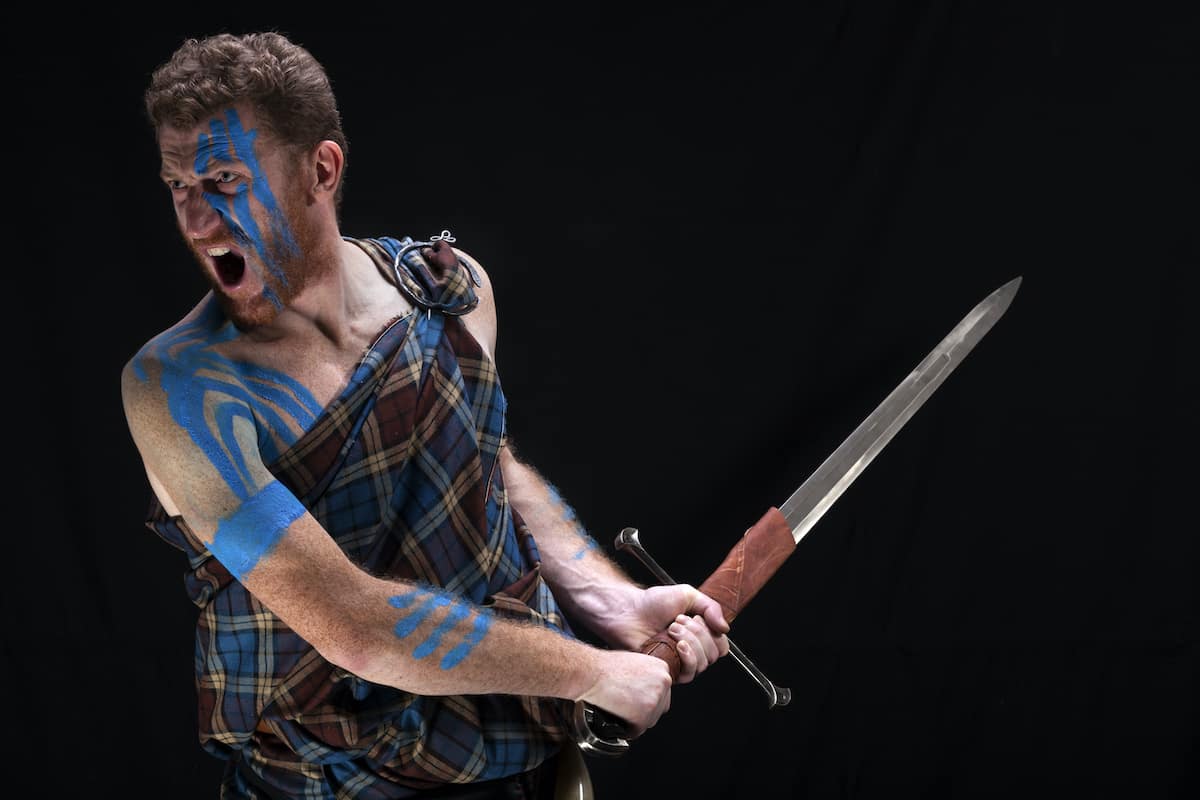 Claymore Swords
Claymore Swords Fantasy Swords
Fantasy Swords Chainmail
Chainmail Helmets
Helmets Torso Armor
Torso Armor Bracers and Arm Protection
Bracers and Arm Protection Gauntlets
Gauntlets Leg Armor
Leg Armor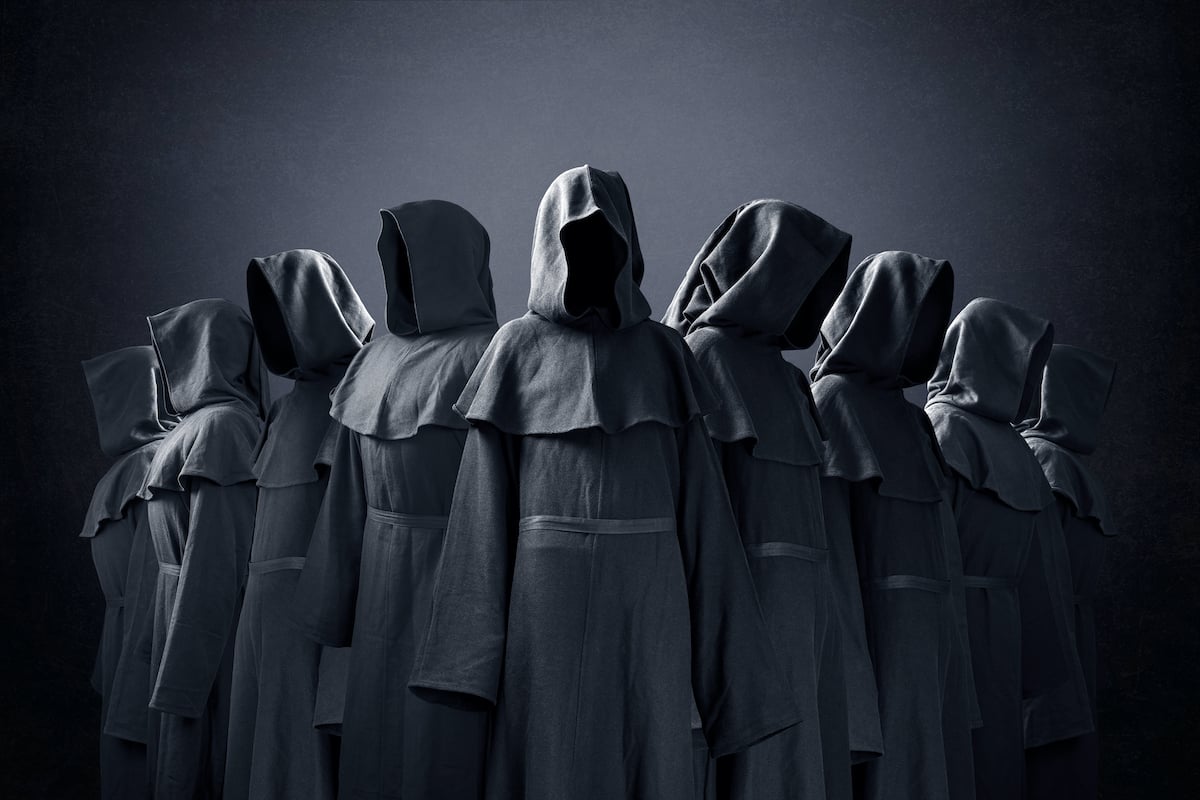 Cloaks
Cloaks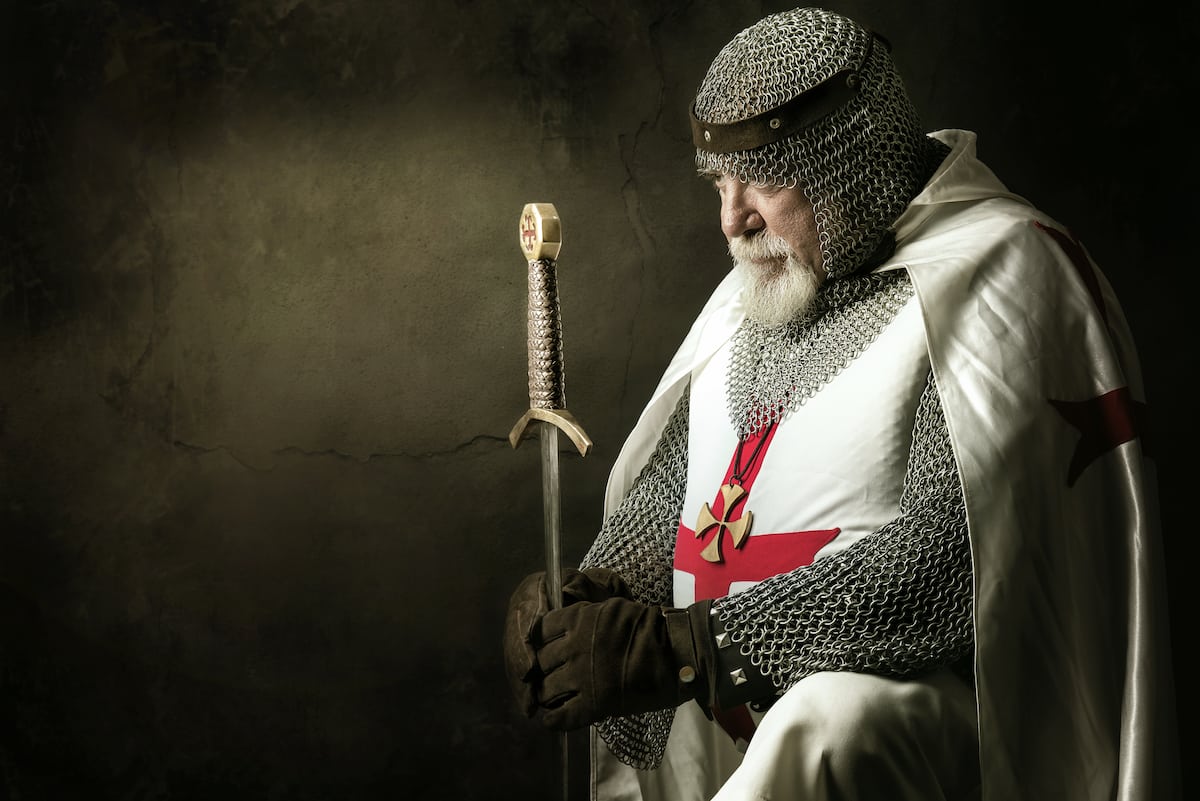 Tabards
Tabards Shirts
Shirts Tunics
Tunics Dresses
Dresses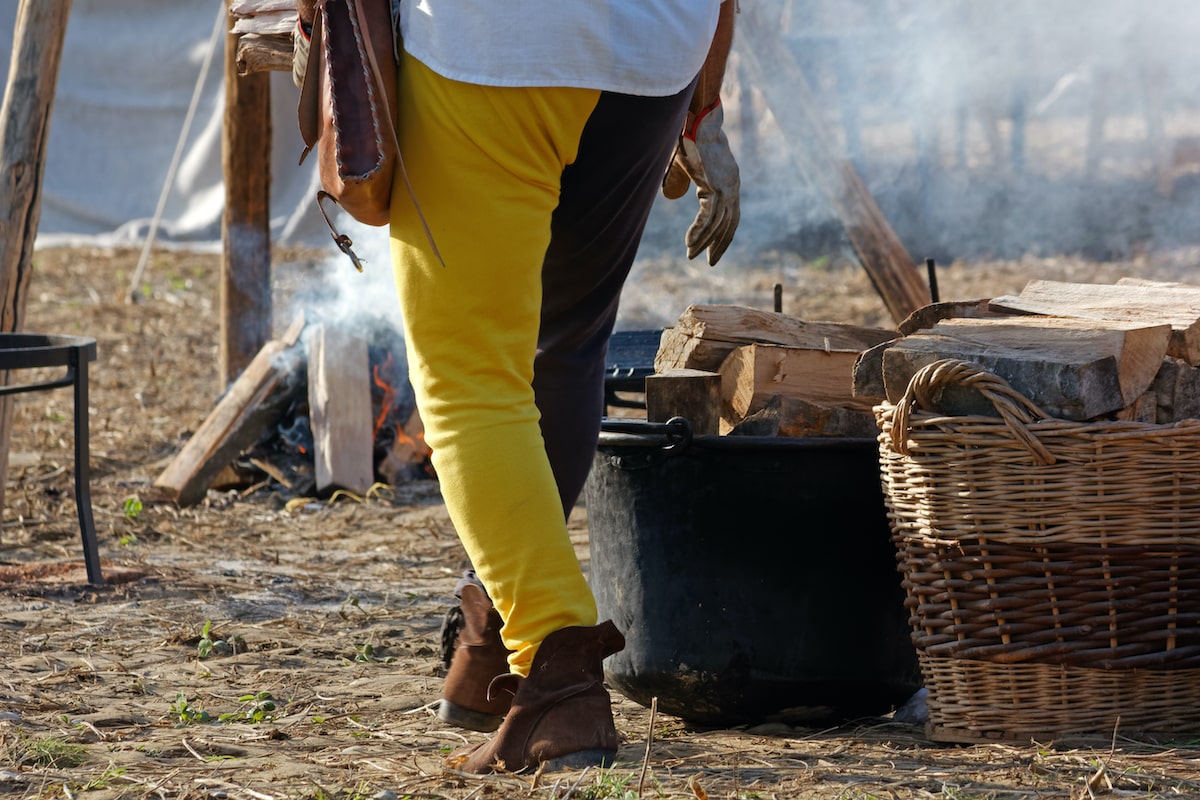 Pants
Pants Gloves
Gloves Belts
Belts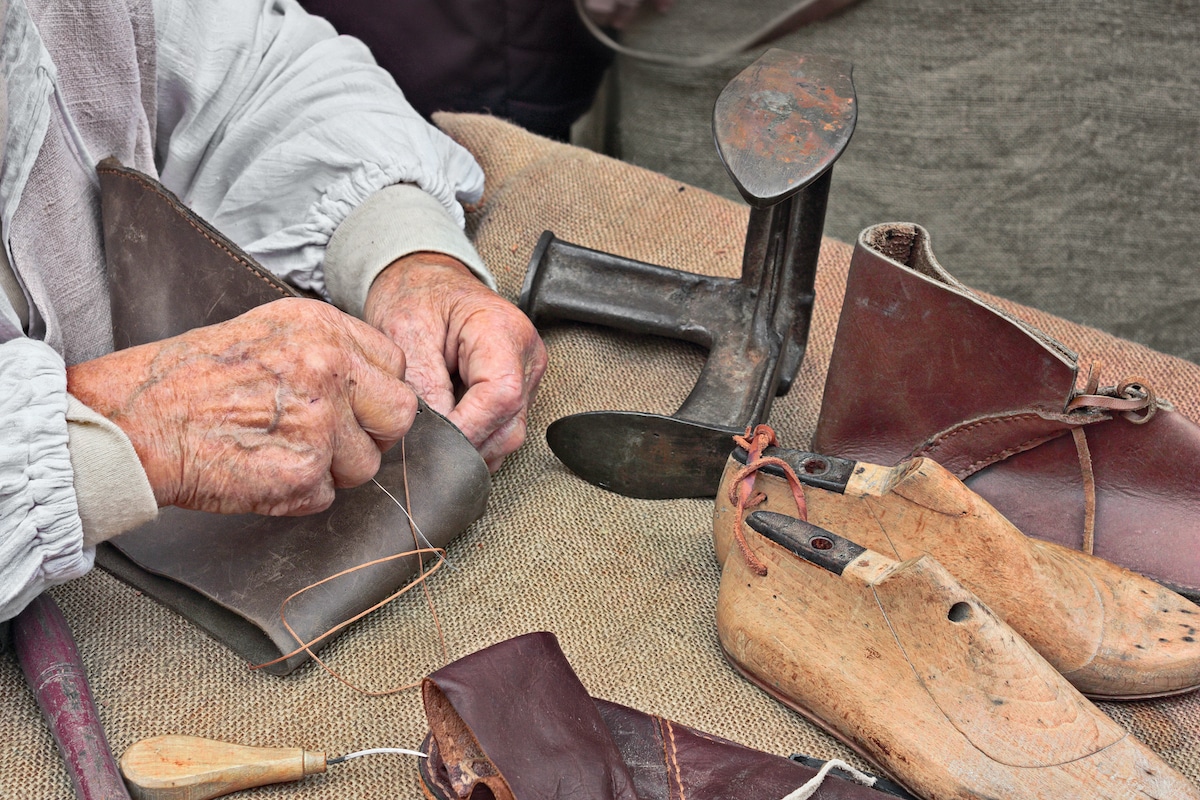 Shoes
Shoes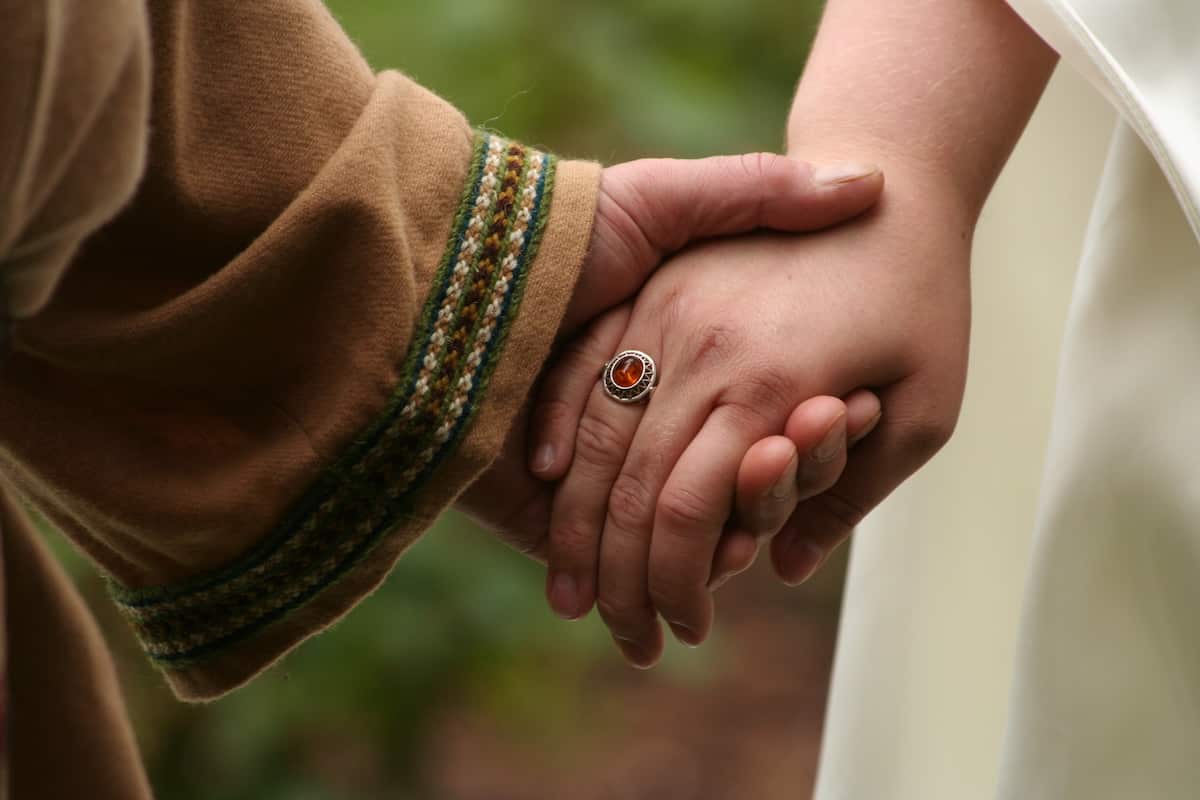 Rings
Rings Necklaces & Pendants
Necklaces & Pendants Bracelets
Bracelets


